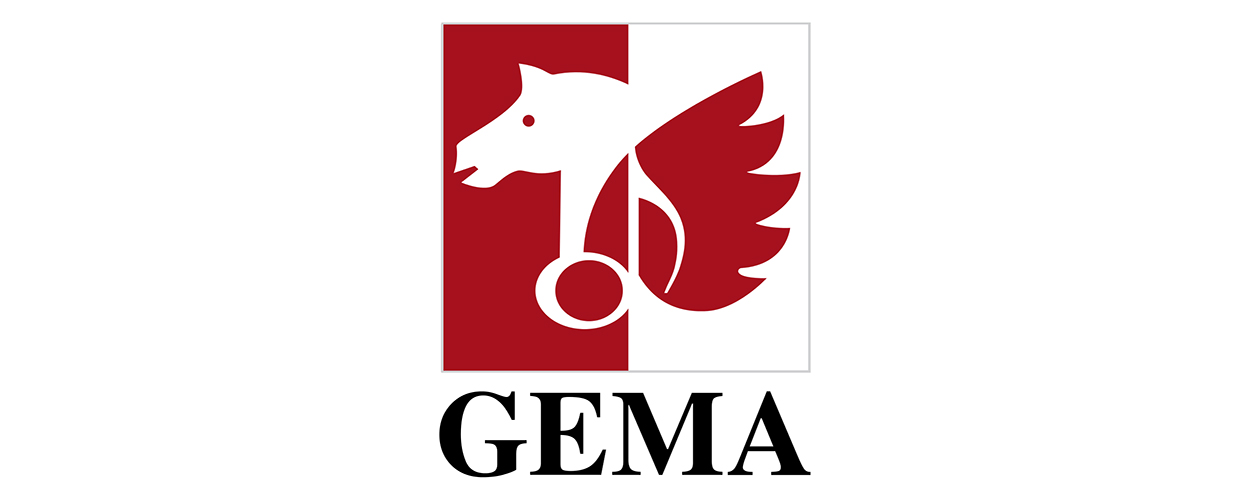This website uses cookies so that we can provide you with the best user experience possible. Cookie information is stored in your browser and performs functions such as recognising you when you return to our website and helping our team to understand which sections of the website you find most interesting and useful.
Business News Labels & Publishers Legal Top Stories
New GEMA court ruling could “devastate” German industry, say music publishers
By Chris Cooke | Published on Thursday 17 November 2016

There’s been quite a bit of hoo and a little bit of ha in the German music industry this week over the potential ramifications of a court ruling on Monday that could force collecting society GEMA to change the way it distributes royalties to its members.
A sufficient hoo-ha, in fact, for the VP of the Independent Music Publishers Forum to declare that the implications of the ruling are “far-ranging and shocking” and could “result in the devastation of the German music industry”. So that’s fun.
The ruling came from a case pursued by Bruno Kramm and Stefan Ackermann of electro-industrial outfit Das Ich over how GEMA pays out money collected when licensees use their songs. GEMA, of course, is the German collecting society for songwriters and music publishers, and handles the licensing of song rights in an assortment of scenarios.
It’s pretty standard in music publishing that where a collecting society administers the performing rights in songs, for signed songwriters, the society pays a chunk of the money it collects for each work direct to the writer and another chunk direct to the publisher. Splits vary from country to country, and in Continental Europe the same often applies to mechanical rights income too.
This is because (except in the US) the songwriter actually assigns their performing rights (and possibly more) to their society rather than their publisher. Any subsequent publishing deal simply sees the publisher get a contractual right to share in any income the society generates from the writer’s song; an income share that it would then usually get direct from the collecting society.
It’s that last bit of the process that is now under question as a result of the Das Ich case. In their lawsuit, Kramm and Ackermann argued that they should be paid the publisher’s share of income linked to their songs as well as the writer’s share, and the court agreed. The grounds for that decision have not yet been published, though it seems that Kramm and Ackermann’s case in part centred on the fact the duo’s publishing agreement did not explicitly state how the publisher should share in GEMA income.
Though there is potentially a wider precedent that would mean only the party which ‘brought’ a song to GEMA – which would usually be the songwriter, though could be a publisher – can directly receive income generated by the work from the society. It would mean that a publisher with a contractual right to share in that income would have to then claim the money it was due from the writer, or possibly deduct it from any income generated where the publisher licenses directly.
Needless to say, German music publishers are not impressed by the ruling, and nor is GEMA. Its CEO, Harald Heker said yesterday: “We consider this decision to be wrong. It is particularly deplorable that the Higher Regional Court only bases its decision on who actually brought in the rights. This principle could, depending on the form of the publishing contract, also be applied to the disadvantage of authors”.
He went on: “It is, however, more important that authors and publishers had an agreement for decades that both sides should benefit from the collected royalties through the assignment of their rights. If an author wishes to pay a publisher in consideration for the publishing activities of the latter, such a share is legitimate”.
Meanwhile composer Professor Dr Enjott Schneider, in his role as Chair of the GEMA Supervisory Board, added: “Authors and publishers sit jointly at the table at GEMA – as is the case in the majority of other collective management organisations – because they need each other. Cultural diversity can only be created by this kind of alliance. Luckily, politicians have understood that the long-established cooperation between authors and publishers is absolutely necessary and therefore a legal clarification must be established”.
This week’s judgement, which is not yet legally binding, but which could be applied to GEMA payments all the way back to 2010, will feed into a wider and ongoing political debate around copyright in Germany, which in part has resulted from the European Union’s Collective Rights Management Directive. The plaintiffs were likely aware of that, Kramm being – until recently – an active participant in Germany’s Pirate Party, and therefore definitely opinionated on copyright matters.
Either way, music publishers in Germany and beyond will be putting pressure on politicians in the country to reduce the impact of any precedent that may have been set here. The aforementioned VP of the Independent Music Publishers Forum, Rolf Budde, said yesterday: “This would result in the devastation of the German music industry, and is yet another example of attempts to legislate and regulate our industry that end up annihilating the long standing work of the music publishing community”.
He went on: “The implications of this latest ruling are far ranging and shocking. The system of partnership between authors and publishers in GEMA is a constant for decades in Germany and therefore this decision is both wrong and damaging. The underlying principle is the agreement of authors and publishers that both parties should benefit from income arising from the rights, and as this is a legitimate contractual arrangement between two parties, the interpretation of the courts is simply wrong”.





